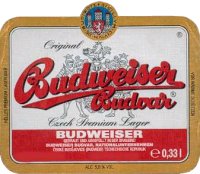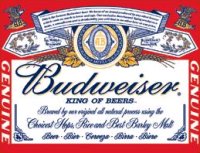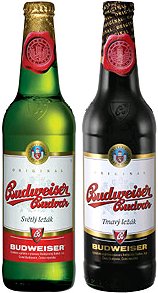| |
Beer world rocked as two Budweisers reach a deal
by Willard Clarke, 01/07
The beer world has been rocked by the news that two arch enemies, Anheuser-Busch of the United States and Budweiser Budvar of the Czech Republic, have signed a deal to sell the Czech beer in North America.
The two breweries have been engaged in bitter and expensive lawsuits for a century over who has the rights to the Budweiser trademark. But now A-B has agreed to market the Czech version, using its vast sales and marketing operation along with a network of around 600 independent wholesalers.
Both sides say the legal battles will continue but seasoned observers believe this is the first step towards a more harmonious relationship between the two companies that could end with a merger.
The Czech brewery has put a brave face on the deal by stressing that Anheuser-Busch needs Budvar to strengthen its portfolio and the agreement is a victory for the smaller company. Sales of imported premium beers are growing by 10% a year in the U.S. and A-B is already wholesaling such brands as Grolsch, Kirin and Tiger. Kirin has reported that its sales in North America have grown by 147% since it signed up with A-B.
But the problem for the Czechs is that they have ceded vital ground to the Americans by agreeing to sell their beer through A-B under the Czechvar brand name rather than Budweiser Budvar. Lawyers for A-B can now argue in future legal actions that Budvar has dropped its claim to the Budweiser trademark in the biggest beer market in the world.
|
|


|
Budvar has been selling limited amounts of beer under the Czechvar name in the U.S. for a few years and has established small but regular sales in 30 states. But the deal with A-B will catapult it into a leading imported premium brand.
Ironically, 2007 marks a century of legal battles between the two companies. Anheuser-Busch, founded by two German immigrants in St Louis, Missouri, in the 1860s claims it was marketing a beer called Budweiser for some 30 years before the Budvar brewery opened in 1895 in the South Bohemian town of Ceske Budejovice. But the Czechs point out that the town - better known by its old German name of Budweis - had been a major brewing centre since at least the 14th century. There were 44 breweries in Budweis in the 15th century, one of which was the Royal Court Brewery, which supplied beer to the monarch and used the connection to call its product �the Beer of Kings�.
In the German fashion, beers from Budweis were generically known as Budweiser beers, just as beers from Pilsen are known as Pilsners. Long before Anheuser and Busch started to market their Budweiser, an older brewery in Ceske Budejovice - first called the Citizens' Brewery and later Samson - exported beer using the Budweiser trademark.
Legal action early in the 20th century stopped the Budvar brewery exporting to the U.S. using the Budweiser name. It used such labels as Crystal and Moldau - the latter being the German version of the major Czech river, the Vlatava - but failed to build sales.
In the rest of the world, the two companies have chased one another through the courts to establish the rights to use the Budweiser trademark. Britain is the only major country where both breweries sell their beers under the full title. In other important beer markets, such as Germany and Spain, the Czechs sell their beer under the full title while the Americans can use only �Bud�. In Italy, where the Americans were victorious, Budvar is sold as Czechvar.
With such a long history of animosity, a merger of the two companies seems absurd at first glance. Budweiser Budvar remains a government-owned company in the Czech Republic but at some stage it will be privatised. The country is now a member of the European Union, which frowns upon nationalised industries.

|
|
If and when Budvar is privatised and is owned by shareholders, it will become a tempting takeover target. The beer, with its 90-day lagering or cold maturation regime, makes it one of the finest lager beers in the world. The company has enjoyed spectacular growth since the fall of communism and the opening up of world markets.
But there is one daunting drawback: any global giant that wanted to buy Budvar would be faced by the threat of continuing and increased legal action from Anheuser-Busch.
This means that the only major international brewery that could buy Budvar and avoid legal action would be Anheuser-Busch.
That is not on the cards at the moment. Budvar can only be privatised by government decree and at present there is no effective government in the Czech Republic, where coalitions tend to fall apart rapidly. Left-of-centre governments usually come to power pledging that Budvar will not be sold to A-B, whereas right-of-centre coalitions say they will privatise it.
|
Elections this year may be a pointer to the brewery's future. In the meantime, the legion of beer drinkers that have given Budvar their support in its campaign to defend its trademark and historic rights must be feeling bemused, if not betrayed, that the brewery has now jumped into bed with its arch enemy.
|
|